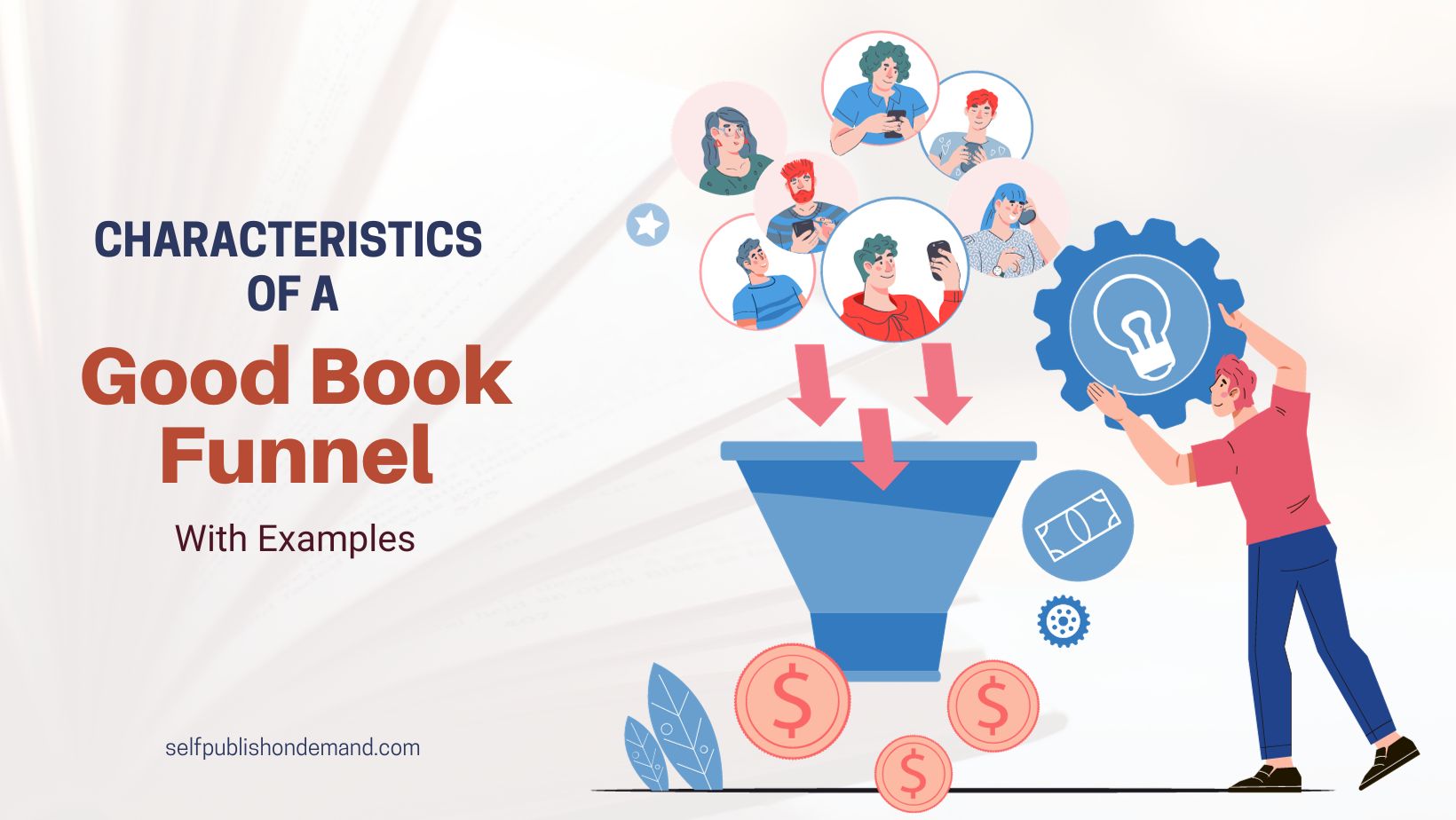For aspiring authors, the dream of sharing their stories with the world has never been more attainable than in the age of self-publishing. Gone are the days of waiting for acceptance letters from traditional publishing houses; now, new authors can take control of their literary destiny and forge their own path to success.
Stepping into the world of self-publishing as a new author can be an exhilarating and empowering experience. It offers the freedom to bring your literary vision to life on your terms. However, amid the excitement lies a host of challenges that can test the mettle of even the most determined writers.
There are few challenges of self-publishing, before become multifaceted professionals in addition to skilled storytellers. In this blog post, we will explore the unique challenges that new authors face on their self-publishing journey.
From navigating the complexities of book production to establishing a strong online presence and effectively marketing their work, we will uncover the realities and provide valuable insights to help new authors overcome these obstacles and thrive in the competitive world of self-publishing.
Table of Contents
What is Advertising?

Advertising goes beyond mere promotion; it is a carefully crafted blend of art, psychology, and business acumen. It is the art of storytelling, compellingly conveying a brand’s message and values to resonate with the target audience. It taps into human emotions, aspirations, and desires, striking a chord that leads consumers to develop a connection with a product, service, or brand.
Beyond its creative aspects, advertising is a strategic endeavor. It involves meticulous research, market analysis, and understanding consumer behavior. Advertisers delve into the psyche of their target audience, uncovering insights that help them craft messages and visuals that resonate on a personal level. They identify unique selling propositions, positioning their offerings as solutions to consumers’ needs and wants.
According to The Chartered Institute of Marketing (CIM), marketing is the driving force behind the products we purchase, the stores we visit, the media messages we receive, and the choices we make as consumers. It goes beyond mere advertising and selling, serving as a crucial management discipline that enables producers to understand and exceed consumer desires.
The Advertising power of Big Publishers
For authors, the problem lies in the time-consuming and costly nature of marketing.
While readers often don’t differentiate between self-published and traditionally published books, the factor that influences their choices is often astute marketing. This puts self-publishing authors at a distinct disadvantage compared to the immense marketing power wielded by big publishers.
The significant advantage held by major publishers lies in their affiliation with massive media conglomerates.
For example, HarperCollins Publishers, with its 120 imprints, has access to the vast media empire of Rupert Murdoch, including channels like Fox News, The Wall Street Journal, The Sun, and The Times. In contrast, self-publishing authors simply cannot compete with such marketing prowess. Traditional publishers also benefit from extensive lists of advanced readers and dedicated employees who assist in preparing and posting book reviews.
Quality Control: Polishing Your Work
In traditional publishing, authors benefit from professional editing and proofreading services, ensuring their work is polished and refined before it reaches readers. However, in self-publishing, the responsibility falls on the author’s shoulders.
Ensuring the highest quality of their work can be a challenge, as self-editing may not always catch every mistake or identify areas for improvement. New authors must invest in professional editing services or build a network of trusted beta readers who can provide valuable feedback and help elevate their work to a professional standard.
Finding the Perfect Balance: Writing and Business
One of the biggest challenges for new authors in self-publishing is finding the delicate balance between the creative process of writing and the demands of running a business. While the freedom to control every aspect of their book is liberating, it also means taking on multiple roles.
Authors must become not only writers but also editors, marketers, designers, and project managers. Juggling these responsibilities can be overwhelming and time-consuming, making it crucial for new authors to develop effective time management strategies and seek support where possible.
Building an Author Platform

In a digital landscape teeming with books and authors, standing out from the crowd can be a daunting task for new authors. Building an author platform that cultivates a loyal readership requires consistent effort and a strong online presence.
From creating an engaging author website to establishing a social media presence and nurturing an email list, authors must invest time and energy into marketing themselves and their books. The challenge lies in finding effective strategies to connect with readers, build relationships, and establish a unique brand that resonates with their target audience.
Successful Self-Publishing Authors
While there are successful self-publishing authors like LJ Ross, Mark Dawson, and Rachel Abbott, they stand out from the masses due to their comprehensive understanding of the publishing industry and effective use of marketing.
These self-publishing trailblazers are also masters of marketing and promotion. They have recognized that their role as an author extends beyond the written word. With savvy marketing strategies, they have leveraged social media, book blogs, and online communities to generate buzz and cultivate a dedicated fan base.
Their ability to engage with readers, participate in book signings, and leverage digital advertising has propelled their works to the top of bestseller lists, reaching audiences far and wide.
Furthermore, these successful self-publishing authors understand the value of collaboration and networking. They have embraced the vibrant indie author community, supporting fellow writers and sharing insights to foster growth and mutual success. Through platforms like conferences, author collectives, and online forums, they have forged meaningful connections, exchanging knowledge and resources that empower all involved.
Self-Publishing Authors meticulously plan and execute each step of the book release process, taking into account reader expectations and desires. They prioritize pre-release publicity and exposure to maximize reviews, pre-orders, and first-week sales.
The benefits of self-publishing
Nonetheless, self-publishing offers numerous advantages despite its marketing challenges. The most significant advantage lies in book royalties. Traditional publishing models typically offer authors between 5 and 8% for paperback sales, while self-publishing authors can earn around 60–70% across all book formats.
This discrepancy means that self-published authors do not need to sell as many copies to achieve similar financial returns. Additionally, self-publishing grants authors full control over their book rights, distribution, and availability, eliminating the need for intermediaries like agents or publishers.
Time is also a notable advantage, as traditional publishing can take up to two years, while self-publishing allows for immediate publication once the book files are ready. Ultimately, self-publishing empowers authors to have complete control over every aspect of the publishing process.
The downsides of self-publishing.
Although self-publishing authors face certain disadvantages, it is possible to overcome them with the right approach. Acknowledging the difficulty of having books available in physical retail stores, self-publishers can leverage online platforms like Amazon, which commands a significant share of the book distribution market.
Moreover, self-publishing authors should focus on pre-publication promotion rather than solely relying on post-publication marketing. Engaging with beta readers, seeking book reviews, exploring cover design options, and involving friends, family, clubs, or colleagues in spreading the word can generate interest and bolster a book’s launch.
Overcoming the Isolation: Building a Support System

Writing can be a solitary pursuit, and self-publishing can amplify the sense of isolation for new authors. Without the support of a traditional publishing house or a network of fellow authors, it’s essential to proactively seek out a support system. Joining writing groups, attending conferences or workshops, and engaging with online communities of authors can provide valuable connections, feedback, and emotional support.
By surrounding themselves with like-minded individuals who understand the self-publishing journey, new authors can find encouragement, advice, and inspiration to overcome challenges and celebrate their successes.
Summary
While self-publishing opens up a world of possibilities for new authors, it is not without its challenges. The journey to success requires a combination of talent, perseverance, and adaptability. Throughout this blog post, we have explored the unique obstacles that new authors face in the self-publishing landscape.
From mastering the art of self-promotion and navigating the complexities of book production to establishing an author brand and connecting with readers, the challenges may seem daunting. However, armed with knowledge and a strong determination to overcome these hurdles, new authors can navigate the self-publishing terrain with confidence.
By embracing the learning curve, seeking guidance from experienced authors, and continuously honing their craft, new authors can transform challenges into stepping stones toward their writing goals. With persistence and dedication, the world of self-publishing holds incredible opportunities for authors to share their stories and thrive in the ever-evolving literary landscape.
New authors must capitalize on the advantages inherent in self-publishing while acknowledging the marketing power disparity. By placing greater emphasis on pre-publication efforts and employing effective marketing strategies, they can significantly enhance their chances of success.



